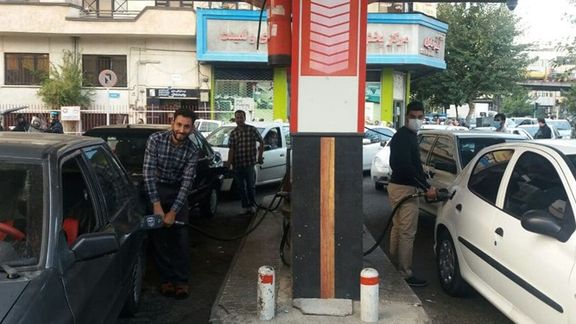'Cyberattack' On Iran Gas Stations Prompts Push For Internet Restriction

Hardliners in Iran have used Tuesday's attack on the national fuel distribution system as an excuse to promote quicker restrictions on access to the Internet.

Hardliners in Iran have used Tuesday's attack on the national fuel distribution system as an excuse to promote quicker restrictions on access to the Internet.
Kayhan, the flagship hardliner newspaper in Tehran, accused Israel and the United States Thursday of launching Tuesday’s apparent cyberattack on Iran’s gasoline stations in a bid to spark protests and riots.
Social media posts from hardliners said parliament should expedite the approval of a bill that will require the government to launch a national intranet − the National Information Network (NIN) − that would reduce the threat of cyberattacks from abroad.
It would also curb access to content deemed undesirable and could not be circumvented by the VPNs used by many Iranians to reach blocked websites.When the authorities shut down the Internet in 2019 during protests, the NIN was used by business for online activities, including cab services.
Tuesday’s attack affected all service stations across Iran, bringing the sales of cheap fuel, accessed through smart ration cards, to a standstill. The problem persisted at some service stations two days after the incident, meaning only unrationed fuel could be sold, at twice the 6 cents a liter price of rationed fuel.
Previous cyberattacks have affected both nuclear sites and Iranian railways.
How Tuesday’s attack was perpetrated remains unclear. Amir Nazemi, a former deputy telecommunications minister and head of information technology organization, tweeted Tuesday that connections within the fuel distribution network were isolated from the Internet. Ali Forouzandeh, spokesman of the oil ministry, also said Tuesday that the system was "offline."
Mehdi Saremifar, a Canada-based science and technology reporter, claimed Tuesday that the attack could not have been orchestrated outside the country. He told Iran International that Iran's gas stations rely on their own antenna and a dial-up connection to transmit data on smart fuel ration cards to the central server of the National Iranian Refining and Distribution Company (NIORDC).
"Therefore, this attack was carried out in the closed system of NIORDC,” Saremifar said. “The person who perpetrated the attack probably had security clearance to access [the NIORDC server]… The perpetrator of the attack was from inside the system.”
Afshin Kolahi, head of New and Science-Based Businesses of Iran Chamber of commerce, told the Iranian Labour News Agency (ILNA) Wednesday said that while service stations were independent from the Internet, their technology was very outdated.
Kolahi said it would be better to improve security systems that were not vulnerable to Internet attack rather than look at general restrictions of access, even if this suited the general approach of some principlists. "Their major aim is cutting people's connection to the cyberspace outside the country and their access to information," Kolahi said.